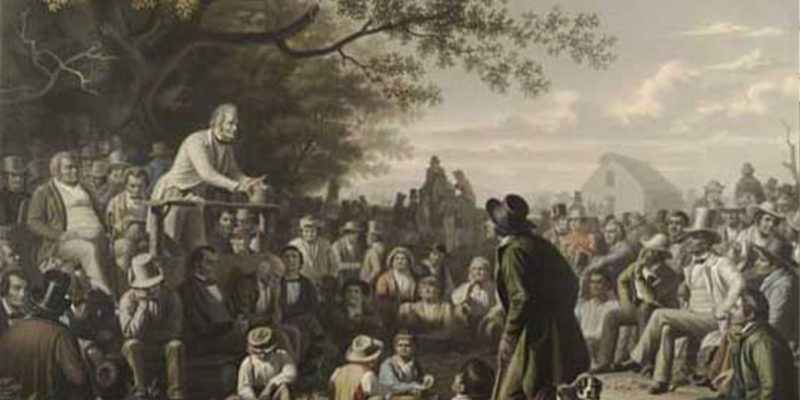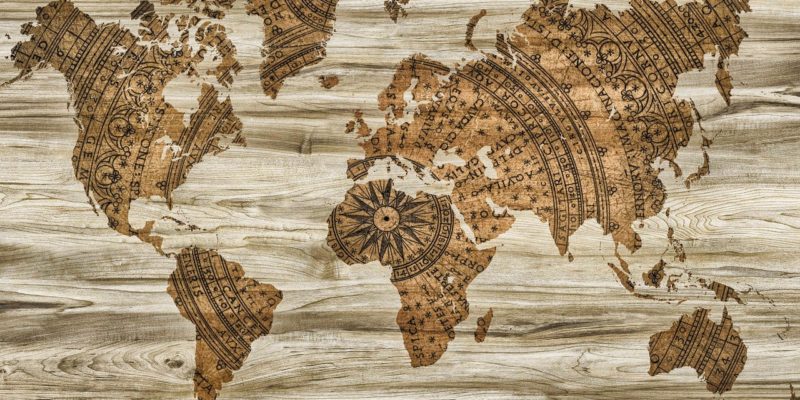The political life of William F. Buckley Jr. stands as a model for reinvigorating the civic virtue that the American founders recognized as necessary.
At the core of America’s founding political philosophy lies a struggle for dominance between two seemingly rival political theories: classical liberalism and republicanism. The writings that bore these philosophies pervaded the political discussion of the time. It was on the whole unprecedented. The founders sought not only to safeguard individual rights but to deliberate on how to create a society in which its citizens would ensure its preservation. As such, they were not only interested in the structure of government but the ways in which the government would promote a certain type of citizen. They reflected upon the ancient republicanism to guide their thinking. Although civic virtue is arguably not central to liberalism, it is a requirement for self-government. While the founders deviated much from ancient republican conceptions of politics, they reflected the philosophy in two main respects related to civic virtue. The first was the “belief that the virtuous should govern and that government should aim at a public good beyond the sum of private interests.” The second was that “The government has a stake in cultivating citizens of a certain kind” (Sandel 1996, 130).
William F. Buckley Jr. inherits this concern with cultivating civic virtue from the founders. He believed that civic virtue is necessary for saving the American republic, and he demonstrated this belief throughout his life. His civic engagement and presence in public life served as an expression of his deep sense of political duty. His willingness to serve his city and nation spoke to his moral character. At the same time as he helped define the modern conservative movement, Buckley embodied civic virtue and participation.
One of the ways Buckley illustrated his civic virtue was in his unyielding commitment to the democratic process. In 1965, Buckley led by example when he announced his bid for mayor of New York. While Buckley had no intention of winning the race, he wanted to give a voice to a constituency that was consistently unable to achieve representation in the mainstream politics of New York. Buckley challenged the republican candidate for mayor, John V. Lindsey, on policy and principle. Lindsey proved that he did not subscribe to classical conservatism in any real sense. He supported Lyndon B. Johnson’s domestic agenda and voted with House Democrats often (Gizzy 2015). Buckley understood that New York desperately needed a conservative candidate who was grounded in republican principles and who would not sacrifice these principles in the name of being a moderate.
Buckley made a point of engaging with the people of New York, especially those who disagreed with him. At the beginning of his campaign, donations and volunteers were hard to come by. It was not until Buckley decided to expand his reach by spending time in each of the five boroughs that his campaign really took shape. Buckley found himself amongst less than intellectually hospitable crowds. Neal Freeman reports that it was not uncommon for Buckley to talk to groups of black voters about the topical issue of crime in inner cities (Freeman 2015). Many did not understand Buckley’s stance on New York Police Department brutality cases. Instead of resorting to a shouting match, Buckley would listen to his opponents’ concerns and reply with intellectual precision. Although many left in disagreement with him, they were able to articulate his point of view and attest to participating in a productive and respectful discussion. As a result of this intimacy with the New York communities, Buckley developed an alliance with the NYPD. He gave voice to their concerns in a time when they faced many serious accusations about misconduct. Not only were his ideas popular with the Irish and Italians, but the black, Hispanic, and Asian police officers were supportive. This had an important impact. Buckley altered the way that people voted. Instead of voting along lines of gender, class, or race, he promoted value or issue voting. Buckley realized that civic virtue and political participation are intrinsic to liberty.
He empowered young citizens to stand up for the minority viewpoint in their communities. He had a strong sense of duty to his city and displayed this commitment with his engagement in the democratic process. On the national level, Buckley served America by representing it internationally. In 1973, the Nixon administration appointed Buckley to serve as a public delegate for the United Nations’ General Assembly. In 1974, he published United Nations Journal: A Delegate’s Odyssey, which included his observations during his time serving. Buckley served his country and the state of New York in his dedication to the needs of citizens.
Perhaps the most well-known example of civic virtue modeled by Buckley were his nationally televised conversations. Buckley trusted that healthy and vigorous debate was a necessary part of the democratic process. He saw that in order to deliberate about the nature of the common good, there needs to be a platform in which to do so. Buckley’s acclaimed TV show, Firing Line, offered the perfect stage to present valuable points of view and allow the marketplace of ideas to determine which ideas would serve the public good. The guests that he invited on his show were at odds ideologically. They ranged from the Black Panthers to Mother Teresa. In a time when racial tensions were high and support for the Vietnam war was waning, Buckley provided an outlet for reasoned discourse. He did not shy away from people with whom he differed ideologically. In this way, Buckley served not only to educate the public on matters of policy, but to show that people could have civilized conversations about important and controversial topics without resorting to shouting matches or violence. The urge to deliberate about the common good and to show basic respect for others with whom we may disagree have seen a decline in American society. How is it possible to restore confidence and responsibility in the civic process? Buckley asks this same enduring question in his book, Gratitude: Reflections on what We Owe to Our Country. He asks: “How are constitutionally well-mannered Americans, brought up in the tradition of freedom and equality, going to be persuaded to press their case for institutionalizing a newfound sense of obligation?” (Buckley 1990, 61).
Buckley demonstrated that he possessed a deep understanding of civic virtue. He lived the virtues that the American republic was founded upon. As Benjamin Franklin noted, republics are fragile creatures and they require a vigilant citizenry to maintain their liberty. In addition, Buckley pointed to the need to restore trust and transparency in local and state governments. If a free society is to be perpetuated, it necessitates strong political participation within local communities. This participation starts with a willingness to put public interests before private ones. With the rise of liberalism and the bureaucratic state it is prudent to restore the intimacy of a community. Practically, this means that republicanism has to exist at both the state and federal levels. We have lost the intimacy that is required on the community level which has in turn caused our national discourse to decrease in merit. The number of town hall meetings across the country has been decreasing. In New England, one in ten registered voters attend town hall meetings. The “average municipal election in the United States engages less than a third of the local electorate” (Nivola 2005). If communities cannot agree to work towards the common good together, there is little chance that citizens will be able to do so on the national scale.
As Alexis de Tocqueville observed in Democracy in America, the United States was at risk of losing the value of civic virtue and involvement in local affairs without the strong family ties that an aristocracy maintains. To replace an aristocracy, Tocqueville saw the importance of voluntary associations in American society. These include religious institutions, as well as social, musical, and political organizations. Tocqueville was impressed by the way that Americans found ways to connect to one another, forming a base level of unity and concern. Today, acts of philanthropy can restore this sense of regard towards the community. In Gratitude, Buckley proposed that citizens starting at the age of 18 dedicate a “year of their lives to civic or philanthropic work.” For instance, he suggests “helping the elderly and the sick, teaching illiterates, helping with environmental work” (Buckley 1990, 80). These are the voluntary associations that Tocqueville observed. The reestablishment of the voluntary associations and regained trust in local government will strengthen the bonds that hold a free society together.
Throughout Buckley’s life he led by example and demonstrated a commitment to the republican ideals of civic virtue through his investment in the public sphere. He embodied the republican ideals that are so desperately needed in today’s political discussion and necessary to preserving a free society. With a restoration of community through federalism and other means, the republican virtues that Buckley championed throughout his life can be elevated to what they once were.
Moriah Poliakoff is a junior at Christopher Newport University majoring in American Studies and minoring in Philosophy and US National Security Studies. She has a particular interest in political philosophy.




 Compass is an online journal that provides a space for the work of talented undergraduates who have original and well-articulated insights on important ideas and issues relating to American democracy understood in the broad contexts of political philosophy, history, literature, economics, and culture.
Compass is an online journal that provides a space for the work of talented undergraduates who have original and well-articulated insights on important ideas and issues relating to American democracy understood in the broad contexts of political philosophy, history, literature, economics, and culture.